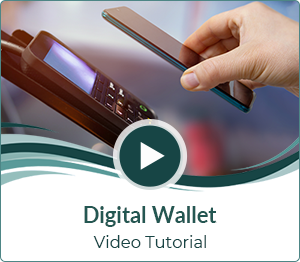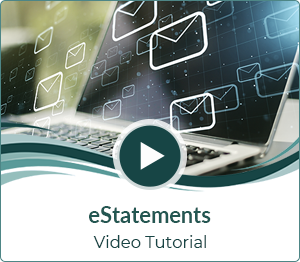Debt Reduction Strategies
The following tips are designed to help you reduce your debt quickly and economically.
- Create a Budget and Stick With It. Your budget should include all of your current expenses.
- Don't Borrow Additional Money to Pay off Debts or Bills.
- Cut Expenses. Get this number by analyzing your budget and determining where reductions can be made (e.g., eating out, buying snacks and lunch at work, going to the movies, etc.). Once you have determined how much you plan to cut, use this "found money to pay down the balances on your debts.
- Optimize Your Monthly Payment. Pay the maximum amount towards your highest interest rate debts. Pay the minimum amount on all other debts.
- Ask for Reduced Interest Rates. Some creditors, especially credit card companies, will reduce your interest rates if you just call and ask. If you receive offers for other credit cards with lower interest rates in the mail, use those offers as leverage when you are re-negotiating your rates with your current creditors.
- Set Goals and Priorities. Determine what's important. When you prepare to buy something ask yourself if this purchase is in line with the priorities you have set and will it help you reach your goal or delay it.
WHAT YOU NEED TO KNOW ABOUT OVERDRAFT PRIVILEGE
- Avoid using this privilege as a short-term loan — it could be a costly form of credit, seek advice from your Personal Banker today!
- If you overdraw your account, get money back into your account as soon as possible. Remember that you need to put enough money back into your account to cover both the amount of your overdraft and any bank fees.
- Even if you have Overdraft Privilege there is no guarantee that the bank will cover your checks, ATM withdrawals, and debit card and other electronic transactions that overdraw your account.
- Good account management is the lowest-cost way to protect your hard-earned money. If you need overdraft privilege every now and then, ask your Personal Banker about the choices and services that are right for you.
NEED CREDIT COUNSELING?
Housing & Credit Counseling, Inc. (HCCI) provides budget and debt education and counseling. HCCI administers a low-cost debt repayment program, which enables consumers to repay their debts with reduced interest and fees. Visit the HCCI website.
Teach Your Children How to Manage Their Money
By Karen W Sommers, Vice President, Marketing
One of the most important life skills children need to learn is how to manage money. The habits and know-how children develop while growing up could lead to a life of financial security…or financial worry. The financial crisis of 2008 has made everyone more aware of how important it is to be well-informed and well-educated about managing money. You can turn everyday situations into a learning opportunity to help your children develop these skills.
Good & Bad…Your Children Learn From YOU!
Children learn a lot from their parents…good and bad! Be an example of a responsible money manager by paying bills on time…being a conscious spender…and an active saver. Look for opportunities to talk about money…read books aloud…and play games that center around spending money wisely.
Needs or Wants?
Family shopping trips are good opportunities to discuss budgeting…spending…and saving. It's easy to give examples of "needs" versus "wants" using different kinds of foods at the grocery store. For example…you need milk for strong bones…but soft drinks are a want.
Pay by the Chore
Make a list of all the chores that need to be done around your house…weeding the garden, washing the car, mowing the lawn, sweeping the garage or dusting the living room. Designate a dollar amount next to each chore. Children can decide which chore they want to do. This gives your children the experience of making a decision and deciding how much money they want to earn…while taking pride in their work.
Bank on Knowledge
Bring your children to the bank and show them how transactions work. Ask a personal banker how the bank operates…how money generates interest…and how they can have a SUPER HERO youth savings account to save their money.
Planning on a Budget
Ask your child to pretend they are in charge of planning a birthday party for their friend…and they can invite four other friends. They need to estimate the cost of the party…including invitations, decorations, food, entertainment, favors and presents. This gives your child an idea of what it costs for a party. How many chores would they have to accomplish to pay for the party?
Budget…Budget…Budget!
Have older children list expenses and income. Under expenses…include what they spend for toys, movies, games, skating, etc. Have them subtract the total of their expenses for the week from their income. Help them think of ways to earn more money…reduce their spending…and talk about a savings plan…maybe save for a car or college.
The 3 Ss…Save…Spend…Share!
Every financial guru in the country will tell you to pay yourself first. Have your children begin by dividing their allowance or any money they earn into three clear jars labeled: SAVE, SPEND, and SHARE.
You can help them decide how to divide up their money, but let's just say they pay themselves first by putting 30% in their "Save" jar…60% in their "Spend" jar and 10% in their "Share" jar. When the "Save" jar is full they can deposit their money in their savings account to earn interest. The "Spend" jar is their money to spend and the "Share" jar is money for them to make donations. Your children need to get in the habit of donating a portion of their money to learn caring, generosity, citizenship and responsibility. Maybe they would like to use this money to buy food and give to "Food for Students" at The Emporia Gazette or give toys to the Salvation Army for Christmas.
All children get the "gimmes"…or "everyone else has it" syndrome. By using everyday situations you can teach your children how to manage their money and help them plan for a stable and successful financial future.














